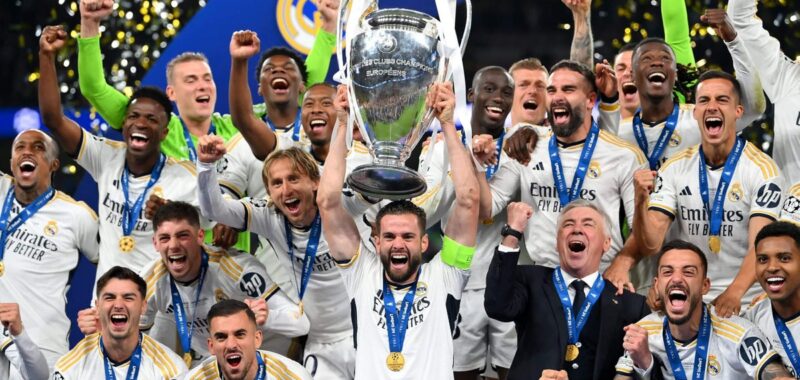Football lobby group the Union of European Clubs (UEC) wants UEFA to set aside five per cent of its £3.7billion ($4.9bn) annual revenue from club competitions to reward all the teams that help to develop the stars of the show.
The Player Development Reward (PDR), the UEC’s first significant proposal, would be shared between European clubs based on the minutes played in UEFA competitions and prize money earned by players they have trained earlier in their careers.
The 36 teams that qualify for the league phase of the Champions League would not be eligible for the payments, as they already receive huge sums in prize money.
If the idea had been in operation last season, nearly 1,500 clubs across the continent would have received PDR payments, with over 400 clubs getting more than €100,000 (£84,500, $112,400) each. Dutch side Ajax would have topped the payments table with a windfall of more than £4.5m.
German duo Schalke and Bayer Leverkusen and Portugal’s Sporting would have all earned nearly £3m, while Chelsea would have been England’s top PDR beneficiary with a cheque for more than £2.7m.
But, at the other end of the spectrum, English non-league side Bury would have earned nearly £13,000, while Serbian amateur team FK Palilulac’s budget would have been topped up by £845.

The highest-earning clubs of the proposed idea for the 2023-24 season (in €)
This season’s payments would have included £650,000 for French side Bordeaux for their part in the development of Barcelona star Jules Kounde, £271,000 to Italy’s Pavia, Inter star Francesco Acerbi’s first pro club, and a very welcome £220,000 for Scotland’s St Mirren, where Aston Villa midfielder John McGinn played until he was 20.
The UEC, which was set up as a counterweight to UEFA’s preferred club lobby group, the European Club Association (ECA), in 2023, has already presented the concept to the European Commission and believes PDR payments should complement, not replace, the solidarity payments that UEFA makes to clubs that do not participate in its competitions.
The solidarity pot has recently grown to £260m, seven per cent of the total that UEFA earns from the Champions League, Europa League, Conference League and Super Cup. That money is shared between hundreds of clubs in UEFA’s 55 member associations but there is no mechanism to reward those clubs with strong academies or incentivise others to develop talent.
UEFA’s own costs for running the competitions account for nearly nine per cent of the combined revenues, with three per cent allocated to clubs that take part in the qualifying rounds. But by far the biggest slice, 75 per cent, or £2.8bn, is shared between the 108 clubs that reach the league phases of the three main competitions, with the Champions League clubs taking nearly three quarters of that, or just under £2.1bn.
Speaking to The Athletic, UEC president Alex Muzio said: “This policy, amongst others to come in the next few months, has the potential to benefit over 1,400 clubs, encourage and reward player-development, whilst bringing those clubs to the heart of the conversation. Additionally, it seeks to address growing competitive balance and representation issues.
“This is a new, innovative, standalone policy which complements the current solidarity mechanism advocated by the UEFA.”
Muzio, the majority owner and president of Belgium’s Union Saint-Gilloise, believes the PDR concept would appeal to all clubs, including the ECA’s 750 members.
The UEC is a smaller organisation, and is not officially recognised by UEFA, unlike the ECA, but it has grown to more than 140 clubs in 25 countries in just two years, with Burnley, Luton Town and Norwich City being among its English members.
(Justin Setterfield/Getty Images)

